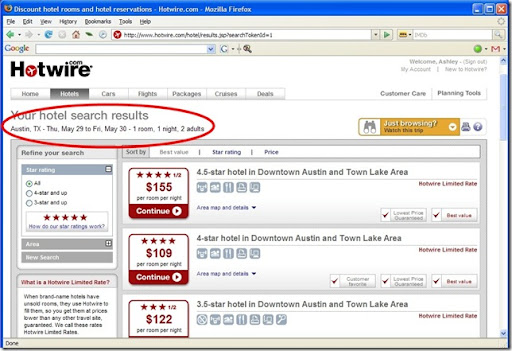I turned on the TV the other day and Groundhog Day was playing (isn’t it always). It was the part where Bill Murray’s character is sitting in the diner stuffing his face with sweets and Andie MacDowell disgustedly quotes Scott at him:
The wretch, concentred all in self,
Living, shall forfeit fair renown,
And, doubly dying, shall go down
To the vile dust from whence he sprung,
Unwept, unhonored , and unsung.
After watching this my first thought was “Newt Gingrich”. He’s a silver-tongued wretch who has lived life as if there are no consequences for his actions. Decade after decade he’s betrayed and disappointed those who’ve trusted and depended on him most (not just his families) and now some Republican voters are ready to believe based on his own heartfelt testimony that he’s really sorry for his previous life, really a changed man. Maybe he is. This description of his conversion to Catholicism sounds pretty sincere:
Pope Benedict XVI’s visit to the United States in April of 2008 was a turning point for me. The Holy Father presided over solemn vespers with the U.S. bishops in the Crypt Church at the basilica in Washington. Callista’s choir was asked to sing for Pope Benedict at vespers, and as a spouse, I had the unique opportunity to attend the papal visit and was deeply moved by the occasion.
Catching a glimpse of Pope Benedict that day, I was struck by the happiness and peacefulness he exuded. The joyful and radiating presence of the Holy Father was a moment of confirmation about the many things I had been thinking and experiencing for several years.
That evening I told Msgr. Rossi I wanted to be received into the Catholic Church, and he agreed to join Callista as my sponsor. Under his tutelage, I studied the Catechism of the Church over the next year and was received into the Church in March of 2009 in a beautiful Mass at St. Joseph’s on Capitol Hill.
So he married his second(?) mistress who happened to be Catholic, naturally started thinking about becoming Catholic himself, and decided to convert after feeling warm and fuzzy when he met the Pope. This is all fine. The problem is that Gingrich is a public figure most of us can only know through his public actions. And he has a long, long history of public actions and words indicating he’s a wretch to the core. Not only that, but he’s demonstrated through life a world-class talent for convincing other people of things that aren’t true. If Gingrich were to win the Presidency we’d have to update the “anyone can be President” speech for future children to something like this:
Yes little Johnny it really is true. In America, anyone can be President, no matter where they’ve come from or what kind of life they’ve lived. For a long time, because the American people valued the ideal of public virtue, really bad men who became President had to hide their immoral actions or people wouldn’t vote for them. But around the end of the 20th century that changed.
Now becoming President works just like sports. If you can run fast, jump high, or throw far you can do just about anything and people will love you because you win for their team. You can take drugs, beat your girlfriend, have sex with all the women you want, abandon your children, commit crimes, and people won’t care as long as you win.
Today if people believe you can win for their political team you can do anything and still be President. People stopped caring in the Democratic party first, but pretty soon it didn’t matter to Republicans either. Now you can do drugs, have lots of affairs, do all kinds of other bad stuff and it just doesn’t matter. You can even be feted in churches and endorsed by ministers as long as you just say “Oops, I didn’t really mean to do all that bad stuff before running for President.”
Of course, some people say that loss of the ideal of virtue is the very reason we live in the dark-future America predicted by many science fiction writers of the 20th century, but I’m not so sure of that myself.
Perhaps this entertaining video says it best:



 In recent days and weeks, I've run across an extraordinary phenomenon: formerly Republican voters who claim they will vote for Senator Barrack Obama next Tuesday. We've seen this among public figures such as
In recent days and weeks, I've run across an extraordinary phenomenon: formerly Republican voters who claim they will vote for Senator Barrack Obama next Tuesday. We've seen this among public figures such as  But what is the sine qua non of Republican support for Obama? I still don't know. I haven't yet heard it explained in a coherent, logical fashion that can reconcile what is known about Obama with these voters' moderate to conservative values. He is "authentic". They "like his economic policies". He has a "first class temperament", says Christopher Buckley. He is "intelligent", a "graduate of Harvard". He "transcends race". He'll "change the failed policies of Bush".
But what is the sine qua non of Republican support for Obama? I still don't know. I haven't yet heard it explained in a coherent, logical fashion that can reconcile what is known about Obama with these voters' moderate to conservative values. He is "authentic". They "like his economic policies". He has a "first class temperament", says Christopher Buckley. He is "intelligent", a "graduate of Harvard". He "transcends race". He'll "change the failed policies of Bush".  You want concrete policy criticisms? Obama stands firmly in support of several that should be deal-breakers for any moderate or conservative even considering supporting him. Obama is a
You want concrete policy criticisms? Obama stands firmly in support of several that should be deal-breakers for any moderate or conservative even considering supporting him. Obama is a  Are you voting for Obama because you don't like Bush's aggressive prosecution of war against Islamofascists in Iraq and around the world? Or because you think Bush mismanaged the war or made a bad decision to fight in Iraq in the first place? I certainly hope not, because wishing and hoping for change won't make America's enemies go away, and voting for Obama because you think his election will suddenly make the world a nicer, friendlier place where diplomacy's, mellifluous tones will soothe the savage Shiites of Iran is just about the most foolishly irresponsible reason to vote for him of all.
Are you voting for Obama because you don't like Bush's aggressive prosecution of war against Islamofascists in Iraq and around the world? Or because you think Bush mismanaged the war or made a bad decision to fight in Iraq in the first place? I certainly hope not, because wishing and hoping for change won't make America's enemies go away, and voting for Obama because you think his election will suddenly make the world a nicer, friendlier place where diplomacy's, mellifluous tones will soothe the savage Shiites of Iran is just about the most foolishly irresponsible reason to vote for him of all.




